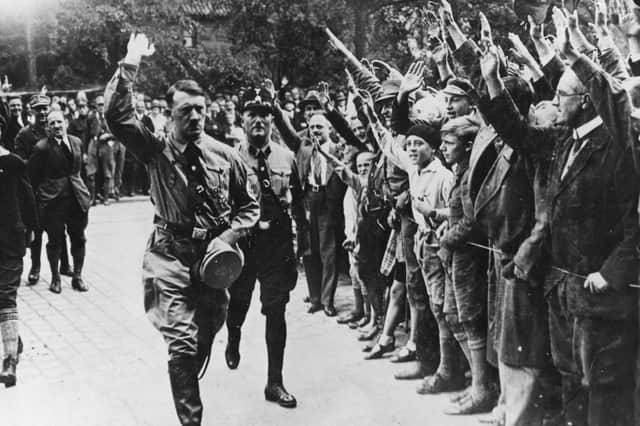Berlin demands Eire repatriates interned naval officers and men (1944)


The German Minister to Eire made a formal request to Mr De Valera’s government for the repatriation of the German sailors after receiving instructions from Berlin.
The News Letter noted: “Mr De Valera may, therefore, be confronted with the most difficult problem which has yet arisen from Eire’s neutrality.
Advertisement
Hide AdAdvertisement
Hide Ad“The German authorities are, presumably, asking for the repatriation of their sailors on the ground that they are shipwrecked mariners, but throughout the war the Eire government has taken the view that anyone landing on Eire territory wearing the uniform of any of the belligerent countries is liable to internment.”
The News Letter added: “A number of British airmen who made forced landings have been interned there. International law on the subject is not clear. The section of the International Convention dealing with the point states that shipwrecked men landed at a neutral port must, failing a contrary arrangement, be guarded by the neutral state so that they may not again take part in military operations, but this article has never been ratified.”
Ice-cream association to continue campaign against ban
The Northern Ireland Ice-cream Association, which had been fighting against the ban on ice-cream in Ulster since it was formed in 1943, in January 1944, at its first annual meeting, again called on the Ministry of Food to consider a modification of the ban. The members of the association were asked for their utmost support in a new campaign.
Mr Hugh Albin, who presided, said that it appeared to be because political difficulties might arise if Northern Ireland were treated differently from Britain that Lord Woolton had not granted a request by the Ulster Minister of Agriculture (the Reverend R Moore) that the restrictions should not apply in Ulster. “In Ulster, however, there is a surplus of milk and plenty of labour,” he noted.
Councillor E Thompson said that “it was a crime that children could not be given a beneficial diet of sugar and cream while alcohol was allowed to be sold to young men and women”.
Comment Guidelines
National World encourages reader discussion on our stories. User feedback, insights and back-and-forth exchanges add a rich layer of context to reporting. Please review our Community Guidelines before commenting.